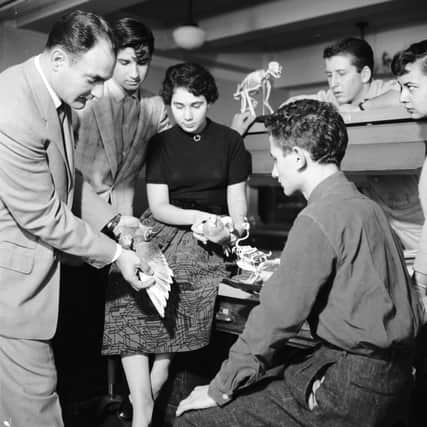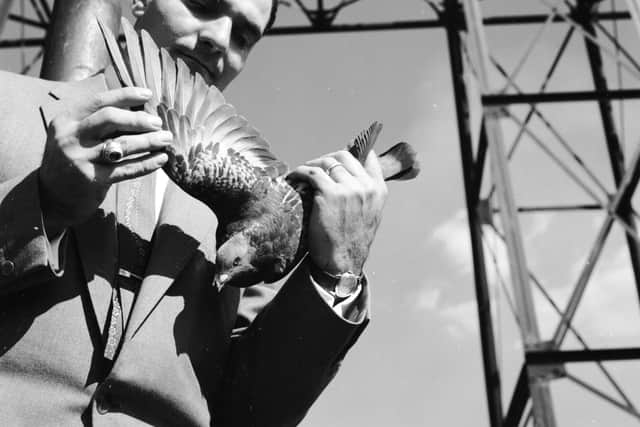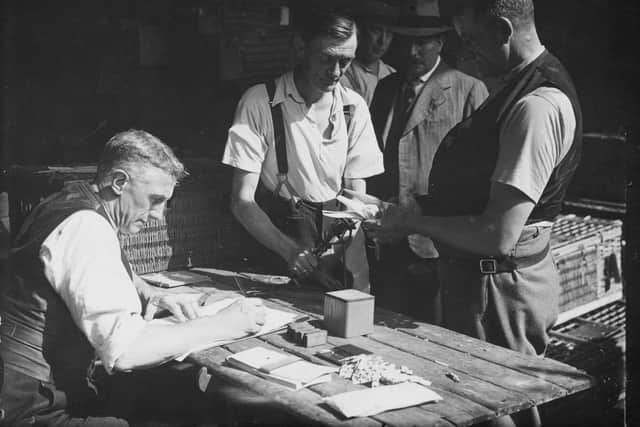Why bird racing shouldn’t be pigeonholed as a Northern stereotype


These pictures from the archive capture a world of back garden aviaries, of lofts and sheds in which birds were scrutinised and preened by owners sometimes seeking an excuse to get out of the house.
But though fancying is forever pigeonholed with Northern communities, it is practiced the world over, and has been for centuries. Neither is it a working class preserve: the first pigeon races in Britain had Royal patronage and were a regular feature of life at Sandringham. Even today, the Queen is said to take an interest.
Advertisement
Hide AdAdvertisement
Hide AdNo-one is sure how racing birds are able to find their way home from a release point sometimes 600m away. Some believe they follow the movement of the sun; others that they use roads and rivers as landmarks.


Despite the distances involved, the birds often come home to roost only seconds apart, and sophisticated timing devices are used to calculate their velocity and declare the winners.
The birds’ reliability as messengers was been put to the test extensively during the Second World War, when thousands of fanciers handed their pigeons over as part of the war effort. In 1940, one bird won an animal medal for gallantry for reporting a lost aircraft.
Editor’s note: first and foremost - and rarely have I written down these words with more sincerity - I hope this finds you well.
Advertisement
Hide AdAdvertisement
Hide AdAlmost certainly you are here because you value the quality and the integrity of the journalism produced by The Yorkshire Post’s journalists - almost all of which live alongside you in Yorkshire, spending the wages they earn with Yorkshire businesses - who last year took this title to the industry watchdog’s Most Trusted Newspaper in Britain accolade.


And that is why I must make an urgent request of you: as advertising revenue declines, your support becomes evermore crucial to the maintenance of the journalistic standards expected of The Yorkshire Post. If you can, safely, please buy a paper or take up a subscription. We want to continue to make you proud of Yorkshire’s National Newspaper but we are going to need your help.
Postal subscription copies can be ordered by calling 0330 4030066 or by emailing [email protected]. Vouchers, to be exchanged at retail sales outlets - our newsagents need you, too - can be subscribed to by contacting subscriptions on 0330 1235950 or by visiting www.localsubsplus.co.uk where you should select The Yorkshire Post from the list of titles available.
If you want to help right now, download our tablet app from the App / Play Stores. Every contribution you make helps to provide this county with the best regional journalism in the country.
Sincerely. Thank you.
James Mitchinson, Editor
Comment Guidelines
National World encourages reader discussion on our stories. User feedback, insights and back-and-forth exchanges add a rich layer of context to reporting. Please review our Community Guidelines before commenting.